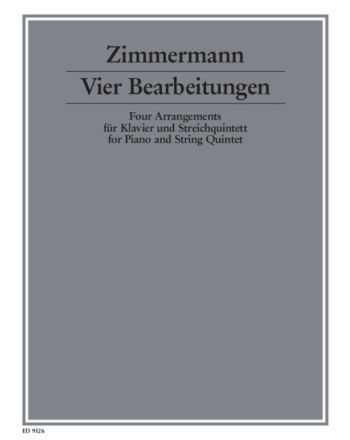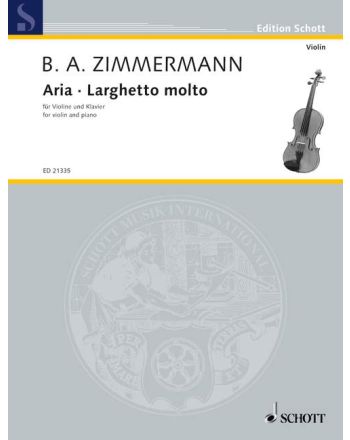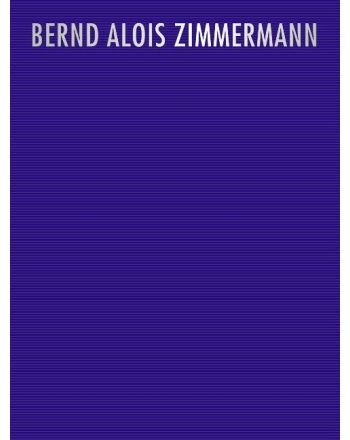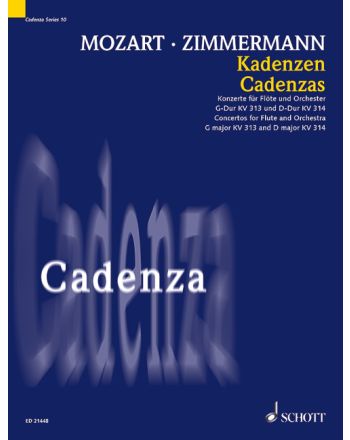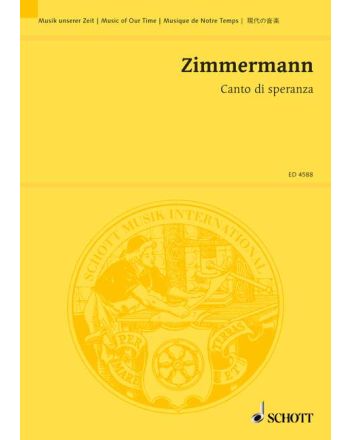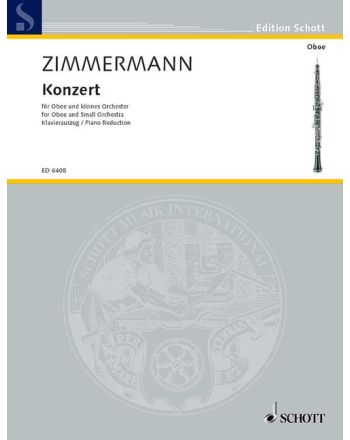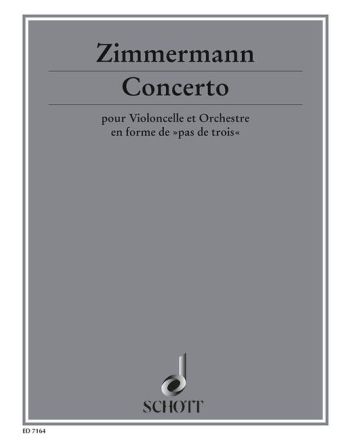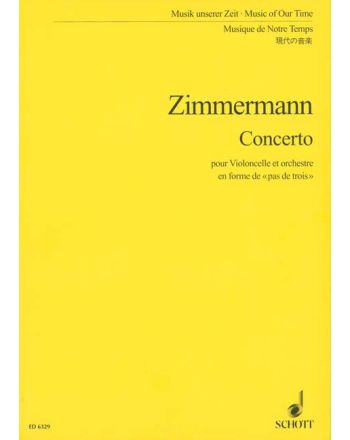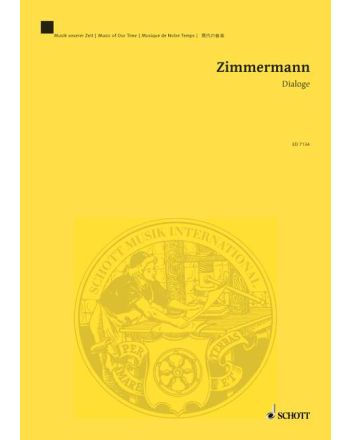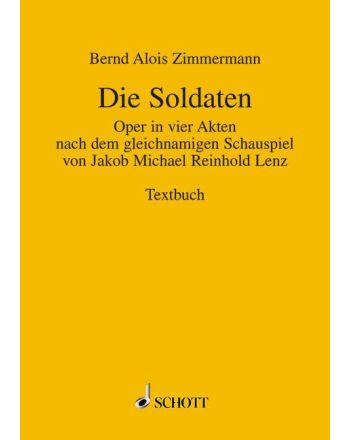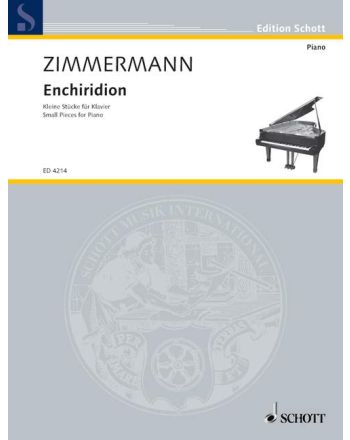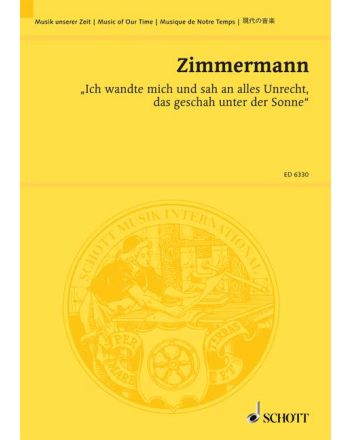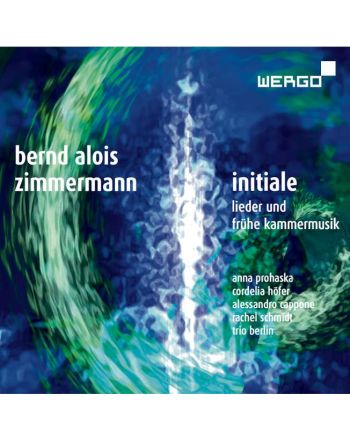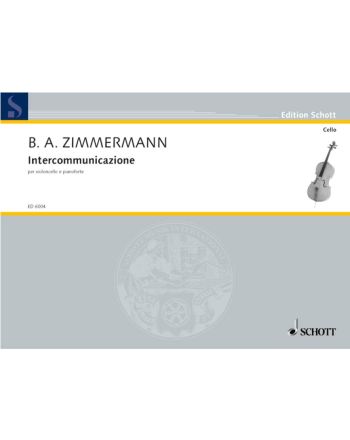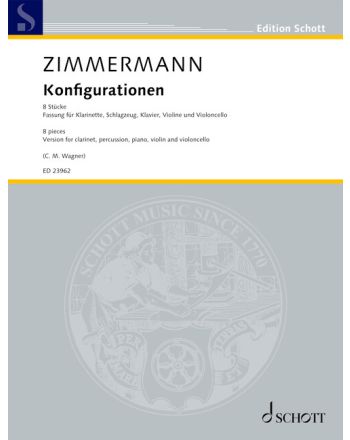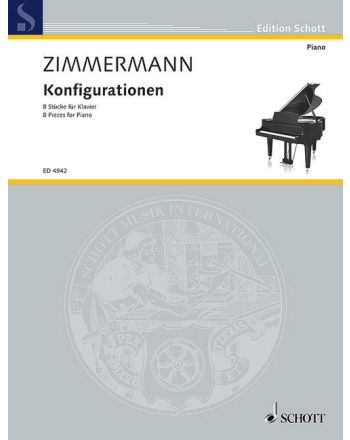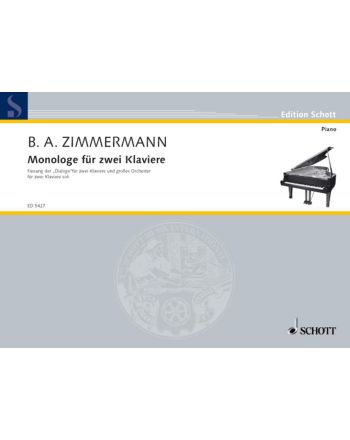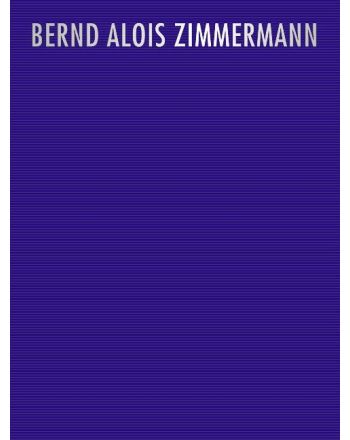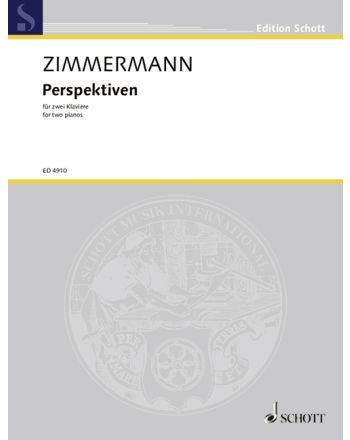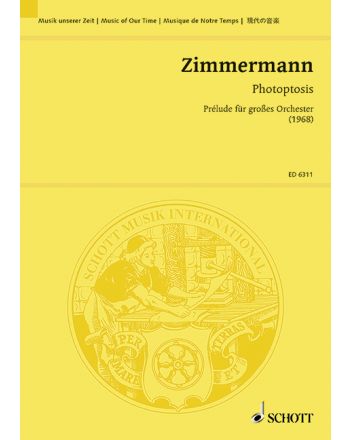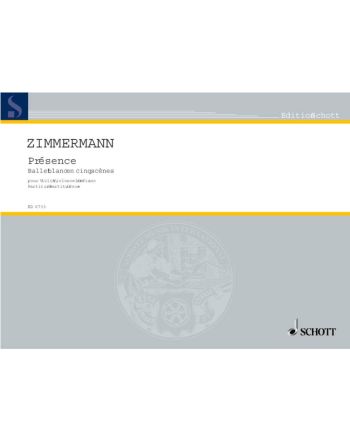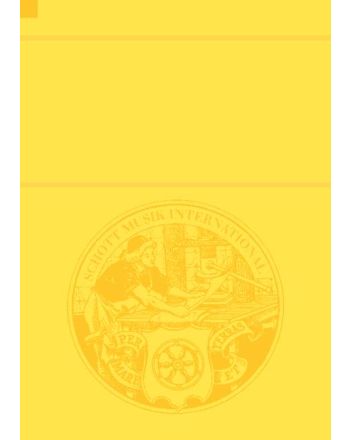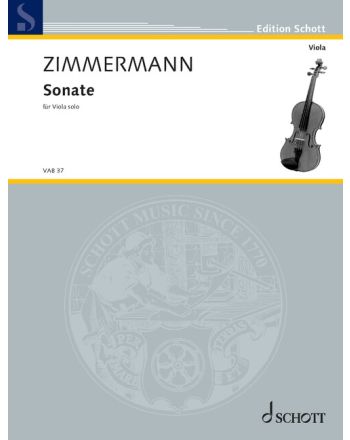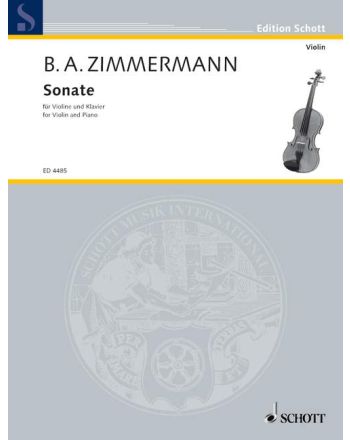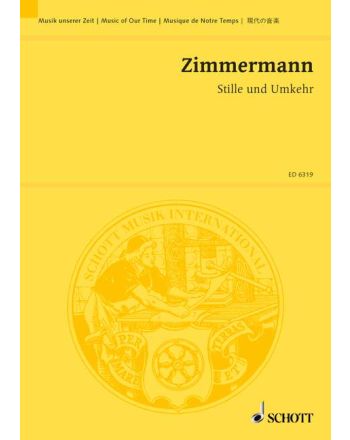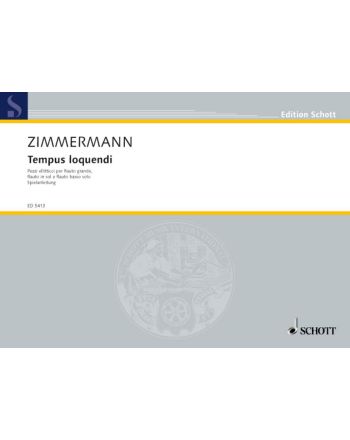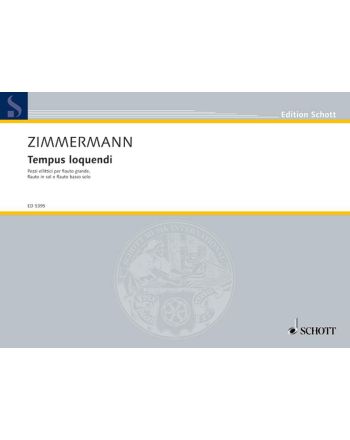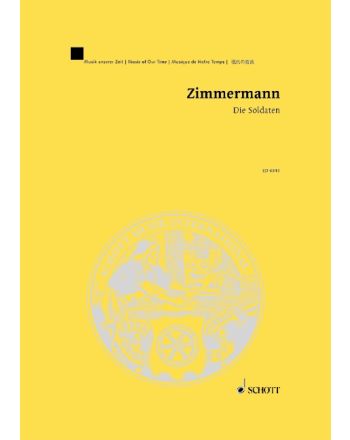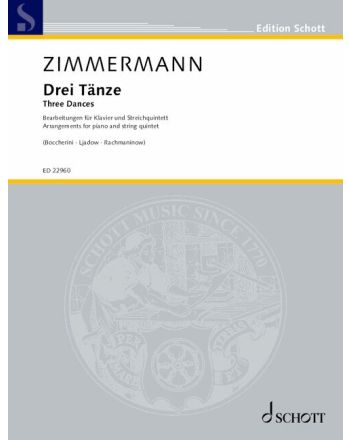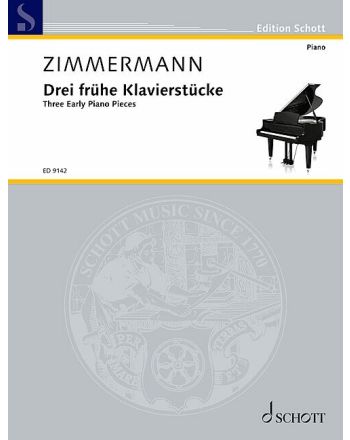
Bernd Alois Zimmermann
About Bernd Alois Zimmermann
It is of greater significance that Zimmermann possessed a much higher differentiated musical perception and awareness than most of the composers of his time, that he was able to compose intensively ‘heard-through’ cantilenas and that he had a highly sensitive feeling for when to stand still and then continue, when to pause, when to surprise and when to consolidate. (Karlheinz Stockhausen)
Bernd Alois Zimmermann was born on 20 March 1918 in Bliesheim near Cologne. He attended the Salvatorianer College Steinfeld in der Eifel from1929 to 1936. After having passed his Abitur [higher education entrance examination], he initially commenced a primary teacher training course in 1937, but shortly thereafter transferred to the Hochschule für Musik in Cologne to study school music, music theory and composition with Heinrich Lemacher and Philipp Jarnach. In 1939, Zimmermann was drafted into military service and returned from the front three years later due to illness. He then completed his musical studies in 1947 with the music teacher examination. In 1948, Zimmermann first attended the Darmstadt Summer courses for new music, coming into contact with Wolfgang Fortner und René Leibowitz; at the same time, his Concerto for Orchestra (2nd version 1948) was first performed in Darmstadt. For financial security, Zimmermann arranged light and film music in the 1950s and composed music for school radio programmes. Zimmermann was elected as the president of the German section of the IGNM in 1956, but relinquished the post a year later after having been unsuccessful in uniting the composers of the older and younger generations. In the early summer of 1957, he was the first German composer to receive a scholarship for the Villa Massimo in Rome where he began work on the opera Die Soldaten. From 1957 onwards, he supervised a composition class and seminar for film and radio music at the Musikhochschule in Cologne. The composer devoted the final years of his life to work on the Requiem for a young poet which was given its first performance in 1969. On 10 August 1970, Zimmermann took his own life in Groß-Königsdorf near Cologne.
Although the size of his musical oeuvre is relatively small, Zimmermann occupies a key position in the history of German post-war music. He not only immersed himself in serial music and the strict concept of the Darmstadt avant-garde, but also combined these influences in a highly original manner with elements of jazz and quotations from historical compositions, thereby intriguingly anticipating the core concepts and techniques of so-called post-modernism. Zimmermann’s oeuvre includes compositions for orchestra - a Symphony (2nd version, 1953), a variety of ballet works and solo concertos - vocal works, chamber music and solo literature and electronic magnetic tape music. The Requiem for a young poet (1967/1969) can be viewed as a showcase for Zimmermann’s compositional development. The work is scored for large-scale forces including narrator, soloists, three choirs, electronic sounds, orchestra, jazz combo and organ. The texts selected by the composer range from political speeches, reports and liturgies to poems by Majakowski, Joyce, Pound, Camus, Schwitters und Bayer. The boundaries of the oratorio are pushed back towards the direction of radio play, reportage and features.
Zimmermann developed the concept of “pluralistic tonal composition” with the Sonata for cello solo (1960) and the Dialogues for 2 pianos and orchestra (2nd version, 1965). The superimposition of a variety of metres and rhythms produces a box form with differing time levels; quotations were also added. In the opera Die Soldaten (1957-1965), the technique of simulation was the central starting point (“sphericity of time”). The literary text, the play by J.M.R. Lenz, already splits open the unity of space and time: the various plot lines run parallel to each other. Zimmermann left the text of the play almost unaltered – elements of the text are additionally superimposed in a collage technique. The planned first performance of Die Soldaten in 1960 was initially postponed as the work was considered to be unplayable. The opera finally experienced its premiere at the Städtische Bühnen in Cologne in 1965: a sensational success which has continued up to the present day.
Zimmermann received a number of prizes, including the north Rhine-Westphalia Grand Art Prize (1960) and the Art Prize from the City of Cologne (1966). In 1965, Zimmermann was appointed as a member of the Academy of the Arts in Berlin.
Worklist
Gallery
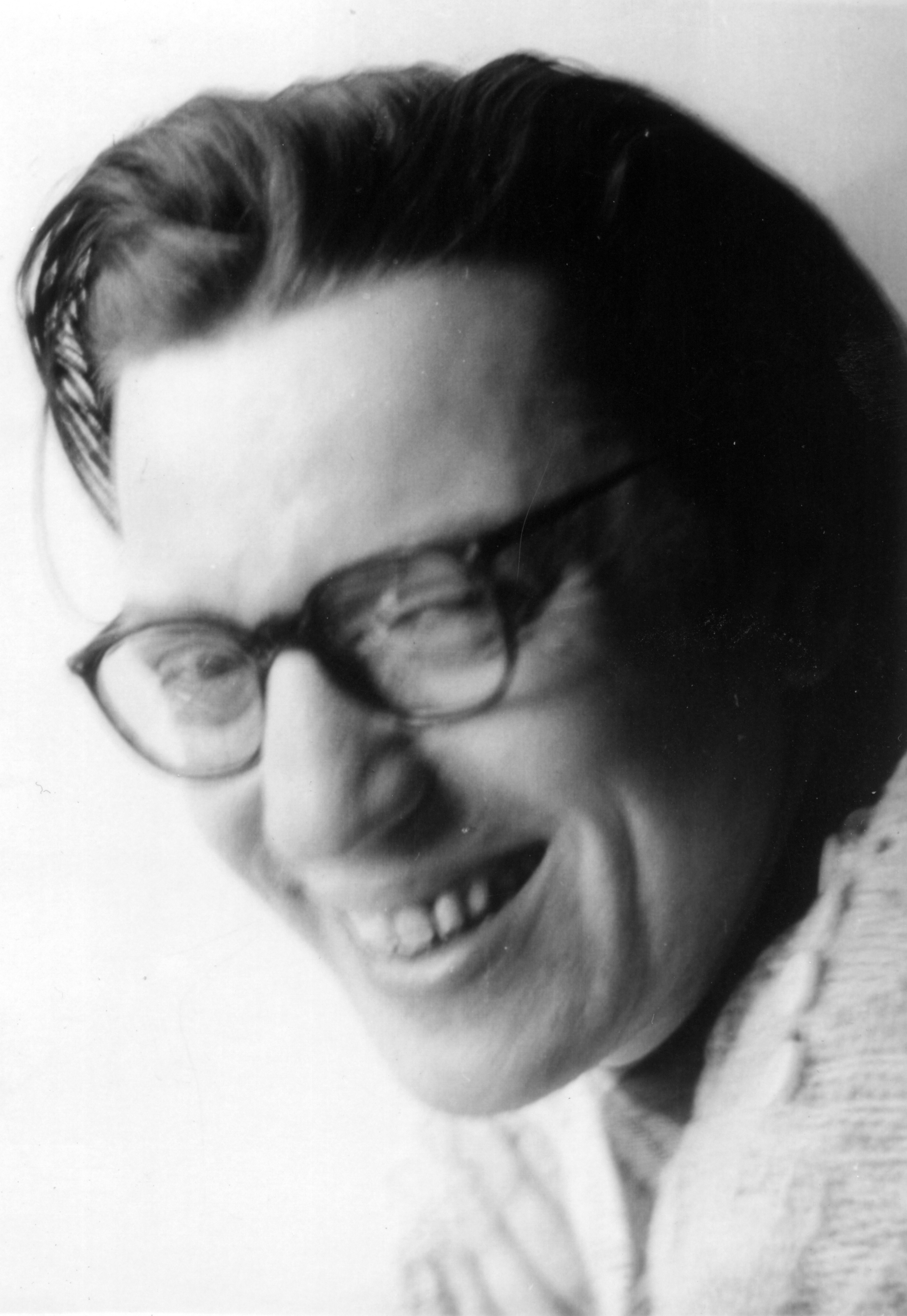


Chronology
Im Wintersemester Beginn einer Volksschullehrerausbildung in Bonn
Beginn eines Schulmusikstudiums an der Kölner Musikhochschule
Er erkrankt 1943, wird zur weiteren Behandlung nach Köln entlassen und nimmt ein Studium der Musikwissenschaft in Köln auf
Uraufführung "Konzert für Orchester" (1. Fassung)
Erste dodekaphone Komposition (2. Satz des "Violinkonzert")
"Exerzitien" (2. Teil des "Enchiridion"), "Symphonie in einem Satz" (1. Fassung)
Uraufführung "Oboenkonzert" durch Hans Rosbaud in Donaueschingen
"Cellokonzert" (später umgearbeitet zu "Canto di speranza")
Uraufführung "Canto di speranza" durch Siegfried Palm
Komposition "Sonate" für Cello solo, "Dialoge" (1. Fassung), neue Überlegungen zum geplanten Oratorium
Kontakte mit Paul Pörtner
Kunstpreis der Stadt Köln Weiterarbeit am Oratorium
Beginnt ein neues Opernprojekt "Medea" (nach Hans Henny Jahnn)
"Tratto I"
Products
-
for piano and string quintetComposer: Bernd Alois ZimmermannEdition: Score and partsBrand: Schott Music
Instrumentation: piano and string quintet (2 violins, viola, cello and double bass)Product number: ED 9126Product TypeAs low as £17.99 -
Two alternative movements for the second movement of the "Kleine Suite" for violin and pianoComposer: Bernd Alois ZimmermannSeries: Edition Schott
Brand: Schott Music
Instrumentation: violin and pianoProduct number: ED 21335Product TypeAs low as £8.50 -
Alagoana / KontrasteComposer: Bernd Alois ZimmermannEditor: Adrian KuhlMedia Type: Sheet musicEdition: Score and critical report, complete editionSeries: Bernd Alois Zimmermann-Gesamtausgabe. Historisch-kritische Ausgabe seiner Werke, Schriften und Briefe , Vol. II/1
Brand: Schott Music
Language: German, EnglishProduct number: BAZ 21Special Price £264.00 Regular Price £352.00Not in stock, but can be ordered - usually despatched (or ready for collection) within 7 days -
Original Compositions and Arrangements for OrchestraComposer: Ferruccio Busoni | Alfredo Casella | Antonín Dvořák | Paul Haletzki | Zoltán Kodály | Franz Liszt | Darius Milhaud | Modest Moussorgsky | Edmund Nick | Sergei Wassiljewitsch Rachmaninoff | Cyril Scott | Friedrich Smetana | Heitor Villa-Lobos | Bernd Alois ZimmermannArranger: Bernd Alois ZimmermannInterpreter: Sarah Wegener | Marcus Weiss | Ueli WigetConductor: Heinz HolligerOrchestra/ensemble: WDR SinfonieorchesterMedia Type: 3 CDsBrand: Wergo
Product number: WER 73872£31.99Not in stock, but can be ordered - usually despatched (or ready for collection) within 7 days -
Concertos for Flute and Orchestra G major KV 313 and D-major KV 314 by W. A. MozartComposer: Bernd Alois ZimmermannSeries: Cadenza , Vol. 10
Brand: Schott Music
Instrumentation: fluteProduct number: ED 21448Product TypeAs low as £6.38 -
CantataComposer: Bernd Alois ZimmermannEdition: Study scoreSeries: Music Of Our Time
Canto di speranza
Brand: Schott Music
Instrumentation: cello and small orchestraProduct number: ED 4588Product TypeAs low as £14.99 -
CantataComposer: Bernd Alois ZimmermannMedia Type: Sheet musicEdition: Solo part, celloSeries: Canto di speranza
Brand: Schott Music
Instrumentation: cello and small orchestraProduct number: ED 6986Special Price £10.49 Regular Price £13.99Not in stock, but can be ordered - usually despatched (or ready for collection) within 7 days -
Improvisationen über VolksliederthemenComposer: Bernd Alois ZimmermannMedia Type: Sheet musicBrand: Edition Peters
Instrumentation: pianoProduct number: EP8636£21.95Not in stock, but can be ordered -
Composer: Bernd Alois ZimmermannEdition: Piano reduction with solo partSeries: Edition Schott
Konzert
Brand: Schott Music
Instrumentation: oboe and small orchestraProduct number: ED 6408Product TypeAs low as £13.99 -
en forme de "Pas de trois"Composer: Bernd Alois ZimmermannMedia Type: Sheet musicEdition: Piano reduction with solo partSeries: Concerto
Brand: Schott Music
Instrumentation: cello and orchestraProduct number: ED 7164Special Price £27.74 Regular Price £36.99Not in stock, but can be ordered - usually despatched (or ready for collection) within 7 days -
en forme de "Pas de trois"Composer: Bernd Alois ZimmermannMedia Type: Sheet musicEdition: Study scoreSeries: Music Of Our Time
Concerto
Brand: Schott Music
Instrumentation: cello and orchestraProduct number: ED 6329Special Price £38.99 Regular Price £51.99Not in stock, but can be ordered - usually despatched (or ready for collection) within 7 days -
studio reiheComposer: Bernd Alois ZimmermannInterpreter: Siegfried PalmConductor: Ernest Bour | Hans ZenderOrchestra/ensemble: Radio-Symphonie-Orchester Berlin | Sinfonieorchester des Suedwestfunks Baden-BadenMedia Type: CDBrand: Wergo
Product number: WER 67762£14.99Not in stock, but can be ordered - usually despatched (or ready for collection) within 7 days -
ConcertoComposer: Bernd Alois ZimmermannEdition: Study scoreSeries: Music Of Our Time
Dialoge
Brand: Schott Music
Instrumentation: 2 pianos and orchestraProduct number: ED 7134Product TypeAs low as £38.99 -
Eine Volksliedkantate unter Benutzung des gleichnamigen Chorsatzes von Heinrich IsaacComposer: Bernd Alois ZimmermannMedia Type: Sheet musicEdition: PartiturBrand: Schott Music
Instrumentation: mixed choir (SATB), soloists (ABar) and instrumentsLanguage: GermanProduct number: ED 7559Special Price £28.49 Regular Price £37.99Not in stock, but can be ordered - usually despatched (or ready for collection) within 7 days -
Oper in vier Akten nach dem gleichnamigen Schauspiel von Jakob Michael Reinhold LenzComposer: Bernd Alois ZimmermannMedia Type: Sheet musicBrand: Schott Music
Instrumentation: Soli, Speakers and OrchestraProduct number: ED 5076Special Price £50.63 Regular Price £67.50Not in stock, but can be ordered - usually despatched (or ready for collection) within 7 days -
Oper in 4 Akten nach dem gleichnamigen Schauspiel von Jakob Michael Reinhold LenzComposer: Bernd Alois ZimmermannMedia Type: BookEdition: LibrettoSeries: Die Soldaten
Brand: Schott Music
Instrumentation: Soloists, Speakers and OrchestraLanguage: GermanProduct number: BN 3990-10Special Price £5.99 Regular Price £7.99Not in stock, but can be ordered - usually despatched (or ready for collection) within 7 days -
Texte von Ernst BertramComposer: Bernd Alois ZimmermannMedia Type: Sheet musicBrand: Schott Music
Instrumentation: medium voice and pianoLanguage: GermanProduct number: ED 7565Special Price £8.63 Regular Price £11.50Not in stock, but can be ordered - usually despatched (or ready for collection) within 7 days -
Little Pieces for pianoComposer: Bernd Alois ZimmermannSeries: Edition Schott
Brand: Schott Music
Instrumentation: pianoProduct number: ED 4214Product TypeAs low as £12.99 -
nach Texten von Harald Gloth, Friedrich Nietzsche, Rainer Maria Rilke und Li-Tai-PoComposer: Bernd Alois ZimmermannMedia Type: Sheet musicBrand: Schott Music
Instrumentation: voice and pianoLanguage: GermanProduct number: ED 7607Special Price £17.99 Regular Price £23.99Not in stock, but can be ordered - usually despatched (or ready for collection) within 7 days -
Alte Tänze verschiedener MeisterComposer: Bernd Alois ZimmermannMedia Type: Sheet musicEdition: PartiturBrand: Bärenreiter
Product number: BA 3572£38.50Not in stock, but can be ordered -
Ekklesiastische AktionComposer: Bernd Alois ZimmermannEdition: Study scoreBrand: Schott Music
Instrumentation: 2 speakers, bass-solo and orchestraProduct number: ED 6330Product TypeAs low as £20.50 -
Songs and Early Chamber MusicComposer: Bernd Alois ZimmermannInterpreter: Alessandro Cappone | Cordelia Hoefer | Anna Prohaska | Rachel SchmidtOrchestra/ensemble: Trio BerlinMedia Type: CDBrand: Wergo
Product number: WER 67352£14.99Not in stock, but can be ordered - usually despatched (or ready for collection) within 7 days -
Composer: Bernd Alois ZimmermannSeries: Edition Schott
Brand: Schott Music
Instrumentation: cello and pianoProduct number: ED 6004Product TypeAs low as £16.13 -
8 piecesComposer: Bernd Alois ZimmermannArranger: Christoph Maria WagnerEdition: Score and partsSeries: Edition Schott
Brand: Schott Music
Instrumentation: clarinet, percussion, piano, violin and celloProduct number: ED 23962Product TypeAs low as £8.50 -
8 piecesComposer: Bernd Alois ZimmermannEdition: Separate editionSeries: Edition Schott
Konfigurationen
Brand: Schott Music
Instrumentation: pianoProduct number: ED 4942Product TypeAs low as £11.50 -
Composer: Bernd Alois ZimmermannMedia Type: Sheet musicBrand: Schott Music
Instrumentation: violin and pianoProduct number: ED 7564Special Price £15.38 Regular Price £20.50Not in stock, but can be ordered - usually despatched (or ready for collection) within 7 days -
Composer: Bernd Alois ZimmermannInterpreter: Lucas FelsConductor: Peter HirschOrchestra/ensemble: Rundfunk-Sinfonieorchester BerlinMedia Type: CDBrand: Wergo
Product number: WER 66562£14.99Not in stock, but can be ordered - usually despatched (or ready for collection) within 7 days -
Debussy | Zimmermann | StrawinskyComposer: Claude Debussy | Igor Stravinsky | Bernd Alois ZimmermannInterpreter: klavierduo huber|thometMedia Type: CDBrand: Wergo
Product number: WER 68092£14.99Not in stock, but can be ordered - usually despatched (or ready for collection) within 7 days -
Composer: Bernd Alois ZimmermannSeries: Edition Schott
Brand: Schott Music
Instrumentation: 2 pianos (4 hands)Product number: ED 5427Product TypeAs low as £25.50 -
Composer: John Cage | Claude Debussy | Morton Feldman | Sofia Gubaidulina | Josef Matthias Hauer | Barbara Heller | Paul Hindemith | György Ligeti | Conlon Nancarrow | Andreas F. Raseghi | Maurice Ravel | Joaquín Rodrigo | Enjott Schneider | Arnold Schoenberg | Erwin Schulhoff | Heinrich Sutermeister | Pēteris Vasks | André Volkonsky | Xiaogang Ye | Bernd Alois ZimmermannMedia Type: CDBrand: Wergo
Product number: WER 66002£3.99Not in stock, but can be ordered - usually despatched (or ready for collection) within 7 days -
Ballet noir en sept parties et une entrée für Orchester und ComboComposer: Bernd Alois ZimmermannMedia Type: Sheet musicEdition: Study scoreBrand: Bärenreiter
Product number: BA 4180£29.50Not in stock, but can be ordered -
Impromptu | Photoptosis | Stille und UmkehrComposer: Bernd Alois ZimmermannEditor: Benjamin W. Bohl | Hemma Jäger | Felix Marzillier | Katharina SchlosserMedia Type: Sheet musicEdition: Score and critical report, complete editionSeries: Bernd Alois Zimmermann-Gesamtausgabe. Historisch-kritische Ausgabe seiner Werke, Schriften und Briefe , Vol. III/5
Brand: Schott Music
Language: German, EnglishProduct number: BAZ 35Special Price £214.50 Regular Price £286.00Not in stock, but can be ordered - usually despatched (or ready for collection) within 7 days -
Music of an imaginary balletComposer: Bernd Alois ZimmermannSeries: Edition Schott
Brand: Schott Music
Instrumentation: 2 pianos (4 hands)Product number: ED 4910Product TypeAs low as £15.50 -
PréludeComposer: Bernd Alois ZimmermannEdition: Study scoreSeries: Music Of Our Time
Photoptosis
Brand: Schott Music
Instrumentation: large orchestraProduct number: ED 6311Product TypeAs low as £25.50 -
Ballet blanc in five scenes for violin, cello and pianoComposer: Bernd Alois ZimmermannEdition: Performing scoreSeries: Edition Schott
Brand: Schott Music
Instrumentation: piano trioProduct number: ED 6733Product TypeAs low as £40.99 -
Lingual for speakers, soprano and bass soloists, three choirs, electronic sounds, orchestra, jazz combo and organComposer: Bernd Alois ZimmermannInterpreter: Phyllis Bryn-Julson | Roland Hermann | Lutz LansemannConductor: Gary BertiniOrchestra/ensemble: Kölner Rundfunk-Sinfonie-Orchester | Manfred-Schoof-QuintettMedia Type: CDBrand: Wergo
Product number: WER 60180-50£24.99Not in stock, but can be ordered - usually despatched (or ready for collection) within 7 days -
for 13 Wind InstrumentsComposer: Bernd Alois ZimmermannEdition: PartiturBrand: Schott Music
Instrumentation: 13 wind instrumentsProduct number: CON 176Product TypeAs low as £16.13 -
for 13 Wind InstrumentsComposer: Bernd Alois ZimmermannMedia Type: Sheet musicEdition: Set of partsSeries: Concertino
Rheinische Kirmestänze
Brand: Schott Music
Instrumentation: 13 wind instrumentsProduct number: CON 176-10Special Price £23.24 Regular Price £30.99Not in stock, but can be ordered - usually despatched (or ready for collection) within 7 days -
(2. Fassung)Composer: Bernd Alois ZimmermannEdition: Study scoreBrand: Schott Music
Instrumentation: orchestraProduct number: ED 4568Product TypeAs low as £25.50 -
for viola soloComposer: Bernd Alois ZimmermannSeries: Edition Schott
Viola Library
Brand: Schott Music
Instrumentation: violaProduct number: VAB 37Product TypeAs low as £11.99 -
for violin soloComposer: Bernd Alois ZimmermannSeries: Edition Schott
Brand: Schott Music
Instrumentation: violinProduct number: ED 4907Product TypeAs low as £11.50 -
for violin and pianoComposer: Bernd Alois ZimmermannSeries: Edition Schott
Brand: Schott Music
Instrumentation: violin and pianoProduct number: ED 4485Product TypeAs low as £13.99 -
OrchesterskizzenComposer: Bernd Alois ZimmermannEdition: Study scoreSeries: Music Of Our Time
Stille und Umkehr
Brand: Schott Music
Instrumentation: orchestraProduct number: ED 6319Product TypeAs low as £16.50 -
Composer: Bernd Alois ZimmermannEdition: Score and partsSeries: Edition Schott
Brand: Schott Music
Instrumentation: string quartetProduct number: ED 9985Product TypeAs low as £16.99 -
£14.99Not in stock, but can be ordered - usually despatched (or ready for collection) within 7 days
-
Pezzi elliticiComposer: Bernd Alois ZimmermannEdition: Set of partsSeries: Edition Schott
Tempus loquendi
Brand: Schott Music
Instrumentation: flute, altoflute, bassflute (1 player)Product number: ED 5413Product TypeAs low as £12.99 -
Pezzi elliticiComposer: Bernd Alois ZimmermannEdition: Performing scoreSeries: Edition Schott
Tempus loquendi
Brand: Schott Music
Instrumentation: flute, altoflute, bassflute (1 player)Product number: ED 5395Product TypeAs low as £16.99 -
Opera in four acts after the play of the same name by Jakob Michael Reinhold LenzComposer: Bernd Alois ZimmermannEdition: Study scoreSeries: Music Of Our Time
Die Soldaten
Brand: Schott Music
Instrumentation: soloists, speakers and orchestraProduct number: ED 6343Product TypeAs low as £72.50 -
Arrangements (Volume II)Arranger: Bernd Alois ZimmermannEdition: Score and partsSeries: Edition Schott
Brand: Schott Music
Instrumentation: 2 violins, viola, cello, double bass and pianoProduct number: ED 22960Product TypeAs low as £28.99 -
First editionComposer: Bernd Alois ZimmermannSeries: Edition Schott
Brand: Schott Music
Instrumentation: pianoProduct number: ED 9142Product TypeAs low as £11.99

